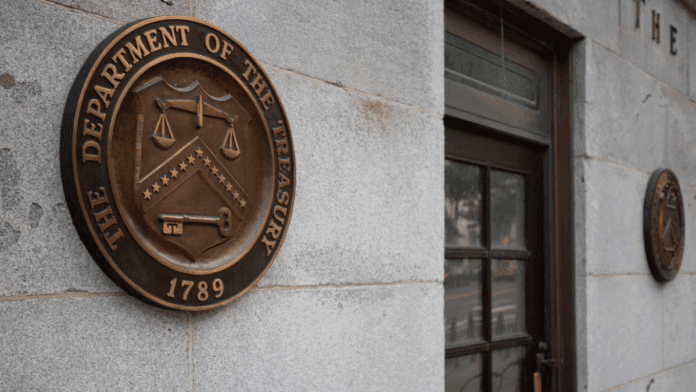The U.S. Treasury Department announced major sanctions on three Mexican financial institutions: CIBanco, Intercam Banco, and Vector Casa de Bolsa. These actions were taken under the Fentanyl Sanctions Act and the FEND Off Fentanyl Act.
The Treasury’s Financial Crimes Enforcement Network (FinCEN) has labeled these institutions as “primary money laundering concerns”. This move bans U.S. companies and financial firms from doing business with these banks’ branches in Mexico.
Deputy U.S. Treasury Secretary Michael Faulkender said the inclusion of Vector, a top-10 brokerage in Mexico with nearly $11 billion in assets, shows how serious the U.S. is about fighting the drug trade. “This is a bold move,” he said, underlining how deeply the action could impact the institutions involved.
The U.S. says the banks helped drug cartels launder millions of dollars and facilitated payments for chemicals used to make fentanyl—a synthetic drug blamed for many overdose deaths in the U.S.
Mexican Banks Caught Off Guard by U.S. Action
The affected banks are not the largest in Mexico, but they still control billions. CIBanco holds over $7 billion in assets, and Intercam Banco manages over $4 billion. While small by global banking standards, these are important players in Mexico’s financial market.
Sanctions like these—aimed at financial institutions—are rare. Usually, the U.S. targets individuals or specific businesses tied to drug groups. Hitting full banks is an unusual and aggressive step.
Mexican Cartel Commanders Labeled Terrorists: U.S. Slaps Heavy Sanctions on CDN’s Top Enforcers
Experts say the move could shake Mexico’s banking system. Luis Manuel Perez de Acha, a money laundering expert in Mexico City, called the announcement a “bombshell”. He noted that since so much of Mexico’s banking system flows through the U.S., these sanctions are almost like cutting off their lifeline.
The action also comes at a time when the U.S. and Mexico are already facing trade tensions. The U.S. has placed 25% tariffs on many imports from Mexico to pressure the country to do more about the fentanyl crisis.
Strong Denials from Mexican Institutions and Officials
All three Mexican financial institutions strongly deny the U.S. claims.
Vector Casa de Bolsa issued a statement saying it “categorically rejects” any accusation that questions its integrity. The firm added it is willing to cooperate fully with both Mexican and U.S. authorities.
Intercam Banco also denied any link to illegal practices. It said it complies with all rules and has nothing to hide.
CIBanco released a similar statement, saying it has “no involvement in illegal activities” and always follows laws and regulations set by oversight bodies.
U.S. Demands Mexican Banks Block Billions in Cartel Cash Hidden via Crypto and Trade
Still, the U.S. stands by its claims. Treasury officials say these banks have played a “longstanding and vital role” in supporting cartel activities. They allegedly helped move cartel money and funded the purchase of precursor chemicals used to produce fentanyl.
Vanda Felbab-Brown, a senior fellow at the Brookings Institution, called the move “enormously impactful”. While these are not Mexico’s biggest banks, they are far from minor players, she said. Cutting them off from the U.S. financial system could make normal operations very difficult.


